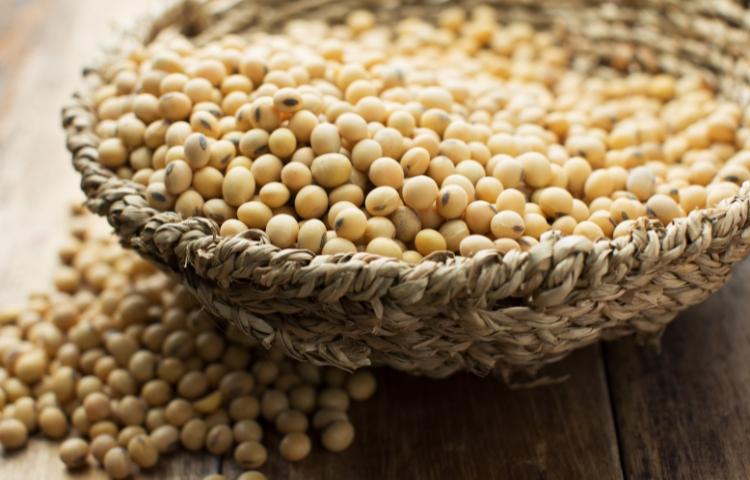Notifications

6 minutes, 52 seconds
-70 Views 0 Comments 0 Likes 0 Reviews

Soybeans, often called the "miracle bean," have been quietly shaping our world for centuries. From ancient Asian diets to modern-day health trends, this humble legume packs a powerful punch—nutritionally, economically, and environmentally. Despite its widespread use, soybeans remain one of the most fascinating and versatile crops on the planet, with untapped potential that continues to grow in importance.
According to recent expert market research, the soybean industry is poised for transformative growth, driven by innovation and global dietary shifts. Researchers highlight that advancements in biotechnology and sustainable farming techniques are enabling higher yields with reduced environmental footprints. This progress is essential as the global population continues to rise, demanding more efficient and eco-friendly food production methods.
Moreover, the growing popularity of plant-based proteins has spurred significant investments in soy processing technologies, creating new soy-derived products that appeal to health-conscious consumers and food manufacturers. This convergence of technology and consumer preference is unlocking fresh opportunities, making soybeans not just a crop but a cornerstone of the future food ecosystem.
At the heart of soybean’s global appeal lies its incredible nutritional profile. Rich in high-quality protein, soybeans are a staple for vegetarians and vegans seeking plant-based protein alternatives. Unlike many plant proteins, soy provides all nine essential amino acids, making it a complete protein source that rivals animal proteins. This makes it invaluable not only for individual diets but also for global nutrition security.
Soybeans are also abundant in isoflavones—natural compounds that function as antioxidants and phytoestrogens. These components have been linked to a myriad of health benefits, including cardiovascular health, hormone regulation, and even potential protection against certain types of cancer. The fiber content in soybeans further supports digestive health, while essential minerals like calcium, magnesium, and iron enrich diets worldwide.
In recent years, soy’s health benefits have gained renewed attention as more people embrace plant-based eating. Its ability to lower cholesterol and support heart health makes it a darling of nutritionists and health-conscious consumers alike.
Beyond nutrition, soybeans are increasingly recognized for their environmental benefits. As a legume, soy has the unique ability to fix nitrogen in the soil, reducing the need for synthetic fertilizers that can harm ecosystems. This natural process improves soil fertility and helps maintain sustainable farming practices.
Soy cultivation, when managed responsibly, can play a crucial role in crop rotation systems, improving land productivity and reducing the strain on the environment. It supports biodiversity by enabling farmers to alternate crops rather than depleting soil through monoculture.
However, it's essential to acknowledge the environmental challenges linked to soy production in some regions. Large-scale deforestation, particularly in parts of South America, has raised concerns about habitat loss and carbon emissions. The good news is that global efforts toward sustainable soy farming, including certification programs and stricter regulations, are helping to mitigate these impacts, steering the industry towards a more eco-friendly future.
Soybeans are not just consumed as whole beans; their versatility extends into numerous food products. Tofu, soy milk, tempeh, soy flour, and textured vegetable protein are staples in many kitchens, offering a range of culinary options for different tastes and diets.
Soy oil, extracted from the beans, is a popular cooking oil worldwide and an essential ingredient in processed foods. Additionally, soy lecithin—a byproduct of soybean oil production—is widely used as an emulsifier in chocolates, baked goods, and dressings.
The industrial applications of soy are expanding as well. Soy-based inks, biofuels, and biodegradable plastics showcase how soybeans are driving innovation beyond food, contributing to more sustainable manufacturing and reducing reliance on fossil fuels.
Soybeans hold a rich cultural significance, especially in East Asia where they have been cultivated for over 5,000 years. Traditional soy foods like miso, natto, and soy sauce are integral to Asian cuisines and lifestyles, embodying centuries of culinary heritage.
In the West, soy's journey began more recently but has accelerated rapidly. From a niche health food to a mainstream protein alternative, soy has adapted and thrived amid changing consumer values. Its role in global food security is increasingly recognized as societies seek sustainable protein sources that can feed billions without compromising the planet.
Despite its many virtues, soybean cultivation faces challenges. Market fluctuations, climatic variability, and environmental concerns demand continuous innovation and responsible stewardship. Additionally, consumer skepticism fueled by misinformation about soy and its phytoestrogens requires ongoing education and transparent communication from producers and health experts.
On the flip side, emerging markets and expanding applications present exciting opportunities. With increasing urbanization and changing diets in developing countries, soybeans stand ready to fill critical nutritional gaps. Meanwhile, the rise of functional foods and personalized nutrition opens new frontiers for soy-based health products.

